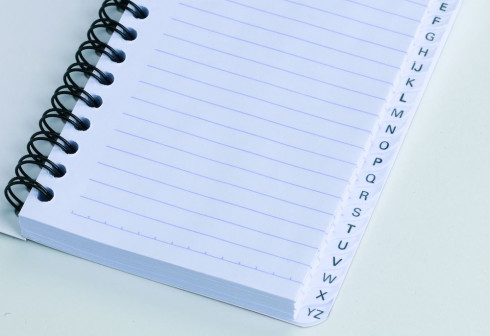So, you happily learn a new word in a foreign language; Just a few days later you come across that same word, only to realise that you can’t even recall an inkling of its meaning… Like when you bump into an acquaintance on the street and you can’t remember their name. Frustrating! These tips will help you retain new vocabulary efficiently.
- Keep track of the new words you learn. Write them down in alphabetical order, together with their meaning, on a Word or Excel list or on a traditional A to Z alphabetic notebook. When you write something down, you retain it more easily. Go through your list periodically. You might be surprised at seeing some repeated entries… but you will mainly notice your progress – the words that seemed strange and odd before are now your bread and butter!
- Learn new words in context. Rather than learning a new word and its meaning independently, learn it within a sentence or example that gives it a background. The free online dictionary Wordreference.com is a fantastic tool for this: it not only gives you a translation into English, but also a couple of sentences as examples in which you can find your new word in use.
- Look for the part of the word that sounds familiar. Spanish words often share a common stem. If you recognise part of a word, you can probably easily deduce its meaning. For instance, if you already know the word “comer”, you can probably work out the meaning of words such as comedor, comestible, comida, etc
- Use mnemonics or memory tricks. Come up with a visual image or a silly story that will help you visualise the word and create links. When I learnt the English word “bigot”, I instantly thought that Hitler wore a moustache (“bigote” in Spanish means moustache). Through a process of association, when I now hear “bigot” my brain thinks of “bigote”>Hitler> and brings me to the actual meaning of bigot.
- Use your new words as soon as possible and as many times as you can until they become familiar and engrained in your memory. Think of several examples in which you could use the word, try to use it in conversation, or write down a few sentences that contain it. My other half can easily spot which new words I have just added to my repertoire because they come up in conversation quite often for a couple of days!

